Explore the article to find out why innovation is so important in the hotel industry and how technology can help.
In an era where technology is transforming various industries, many hotels still rely on manual processes to run their operations. However, the adoption of modern technologies and automation can significantly improve efficiency in the hospitality industry. In this article, we will explore the importance of leveraging automation in two key areas: guest experience and internal operations processes.
How hotel innovations elevate guest experience
One of the primary focuses of any hotel is to provide an exceptional guest experience.
However, traditional methods of making service requests, such as phone calls, in-person interactions, or written requests, have become outdated and can not fully provide a quality stay for guests.
Nowadays, guests have high expectations for a smooth and hassle-free experience, as well as an efficient functioning of hotel operations, which, for example, translates into the demand for mobile check-in and check-out, or automated room or housekeeping services through a mobile app.
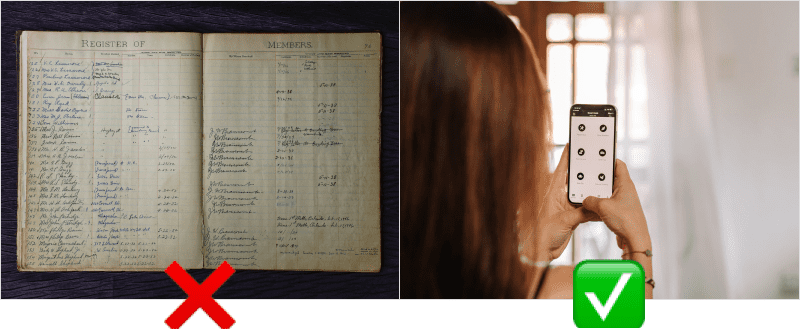 Traditional vs. digital approaches in hotel management
Traditional vs. digital approaches in hotel management
To meet these expectations, hotels can leverage innovative hotel automation solutions.
Easy-to-use app for facility managers
Future-ready way to digitalise your service requests, coordinate your teams and continuously improve.For example, your hotel provides in-room breakfasts. You can enhance the convenience for guests by enabling them to effortlessly order their breakfast through a user-friendly app. By scanning a QR code, guests can access the menu, customise their meal, choose a preferred breakfast time, and more. This eliminates the need to call reception or visit the lobby, as the information is instantly transmitted to the responsible staff members.
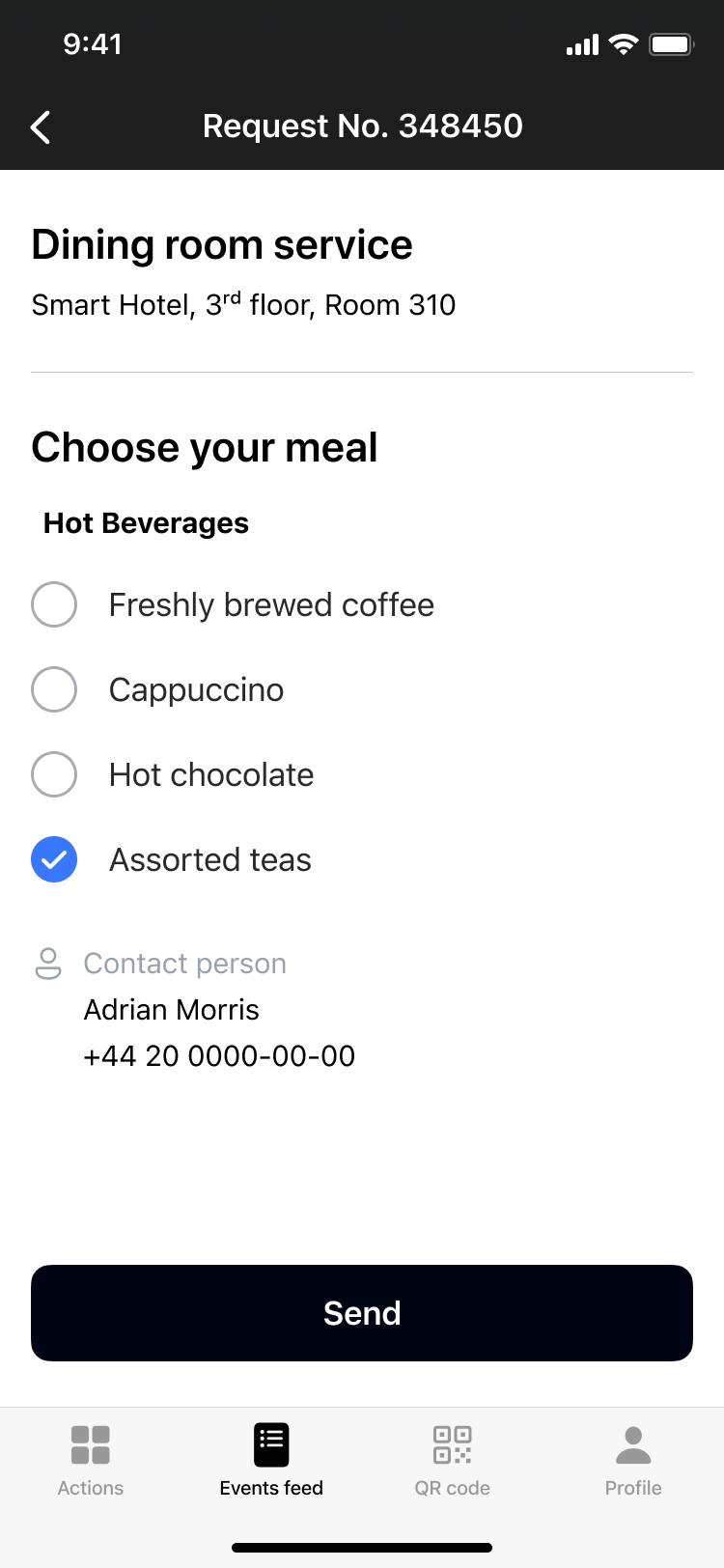
Example of room service request
Such applications not only streamline breakfast orders, but also enable guests to effortlessly convey their preferences and requests by scanning a QR code.
✅ Is the light bulb burned out? Simply report it on our user-friendly app.
✅ AC not working? Technician arrives in 3 minutes. Just send us a request.
✅ Leave QR code feedback for cleanliness issues. It takes just a few minutes.
By simplifying and personalising the guest experience, hotels can leave a lasting impression on their visitors.
How streamlining housekeeping processes improves service quality
Efficient housekeeping processes are vital for maintaining service quality and ensuring guest satisfaction.
Manual processes carry a higher risk of overlooking important steps, such as changing linens or restocking supplies before guest arrivals. Failing to make a positive first impression can make it difficult to earn guest loyalty and encourage their return visits.
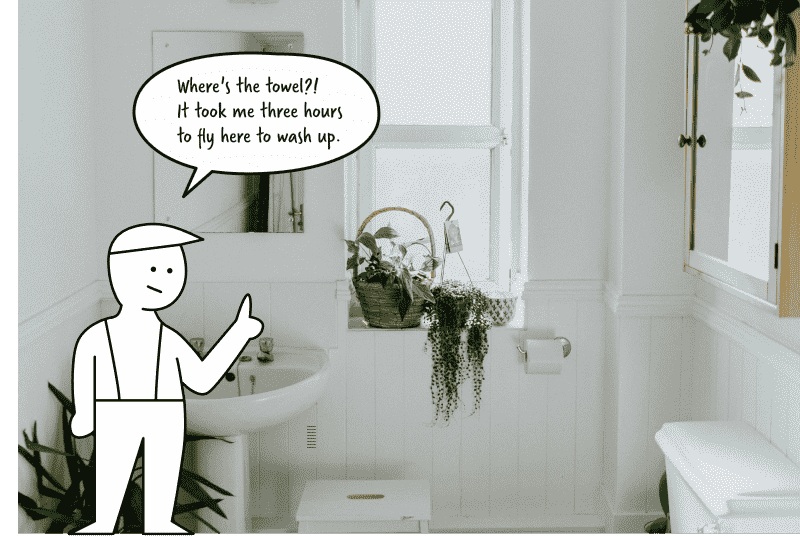 A guest's first impression is crucial
A guest's first impression is crucial
However, with automation, hotel managers can establish a seamless and efficient process, eliminating any possibility of oversight. With such digital tools, guest requests can be centralised, tasks can be assigned to staff members with efficiency, and real-time progress monitoring becomes a reality.
The result is shorter room cleaning and preparation times because staff are able to manage their time and effort more efficiently. And most importantly, this leads to creating a good first impression for guests.
How automated facility maintenance helps plan procurement and repairs
The manual process for facility maintenance is still used by many hotels today, whether it's printed checklists, fragmented Excel sheets, or informal WhatsApp chats. It's a rather habitual approach that's hard to change. However, effective managers understand the risks associated with paper or disparate service records:
❌ Lack of centralised information
An easily accessible repository of service-related information becomes difficult when fragmented records are scattered across different sources such as Excel sheets and WhatsApp chats.
❌ Limited transparency and accountability
It is hard to track the progress of tasks, identify responsible parties, and hold them accountable for any delays or issues that arise.
❌ Increased risk of errors
Data entry errors or misplaced information are more common in manual records.
With digitalisation of facility maintenance, hotel management can effectively eradicate the drawbacks outlined above and take advantage of numerous benefits.
As one example, hotels can ensure timely equipment maintenance and fix unexpected breakdowns with digital checklists.
Here's how it works:
- The designated employees scan the QR code at each location.
- Then they fill out the predefined checklist, save the data, and move on to the next location.
- All inspection data is recorded and easily accessible for future reference or analysis.
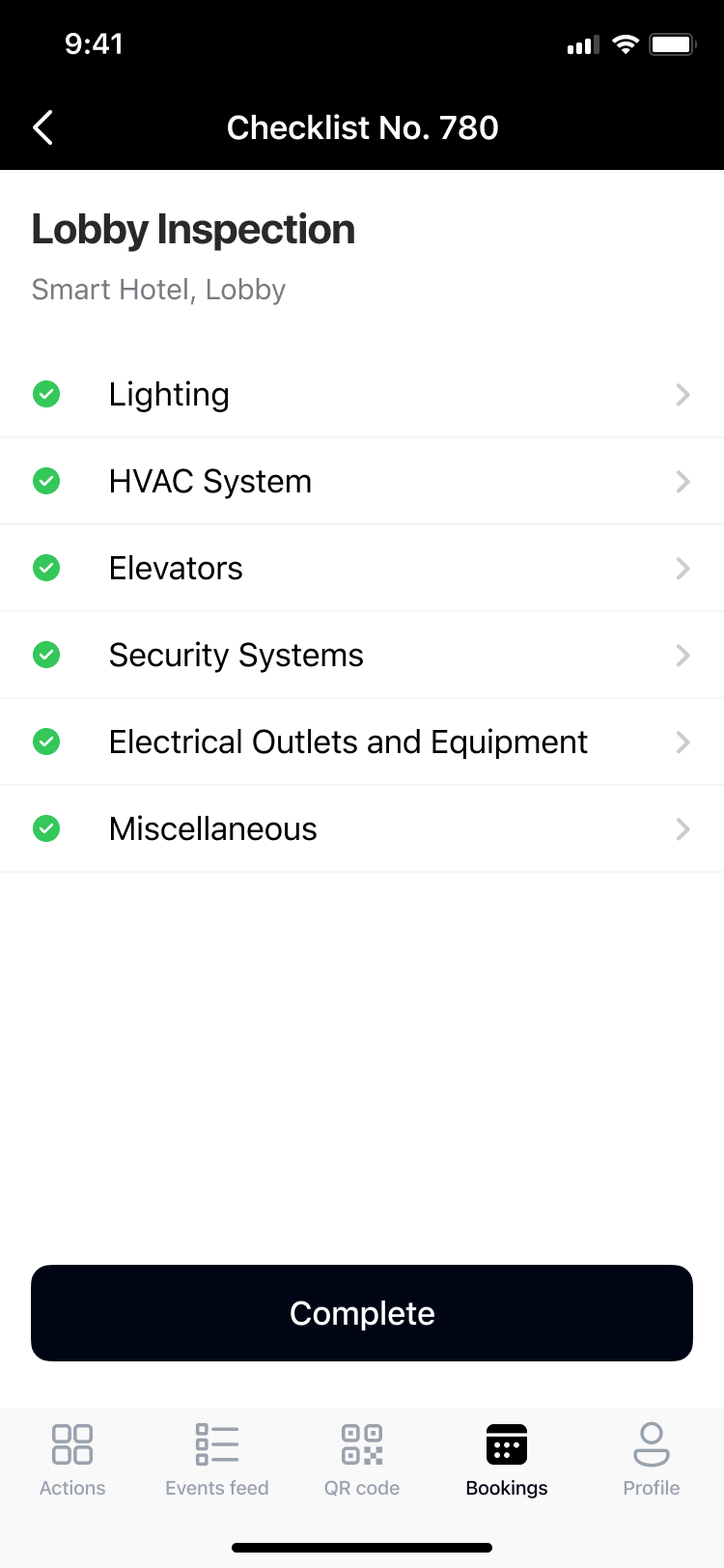
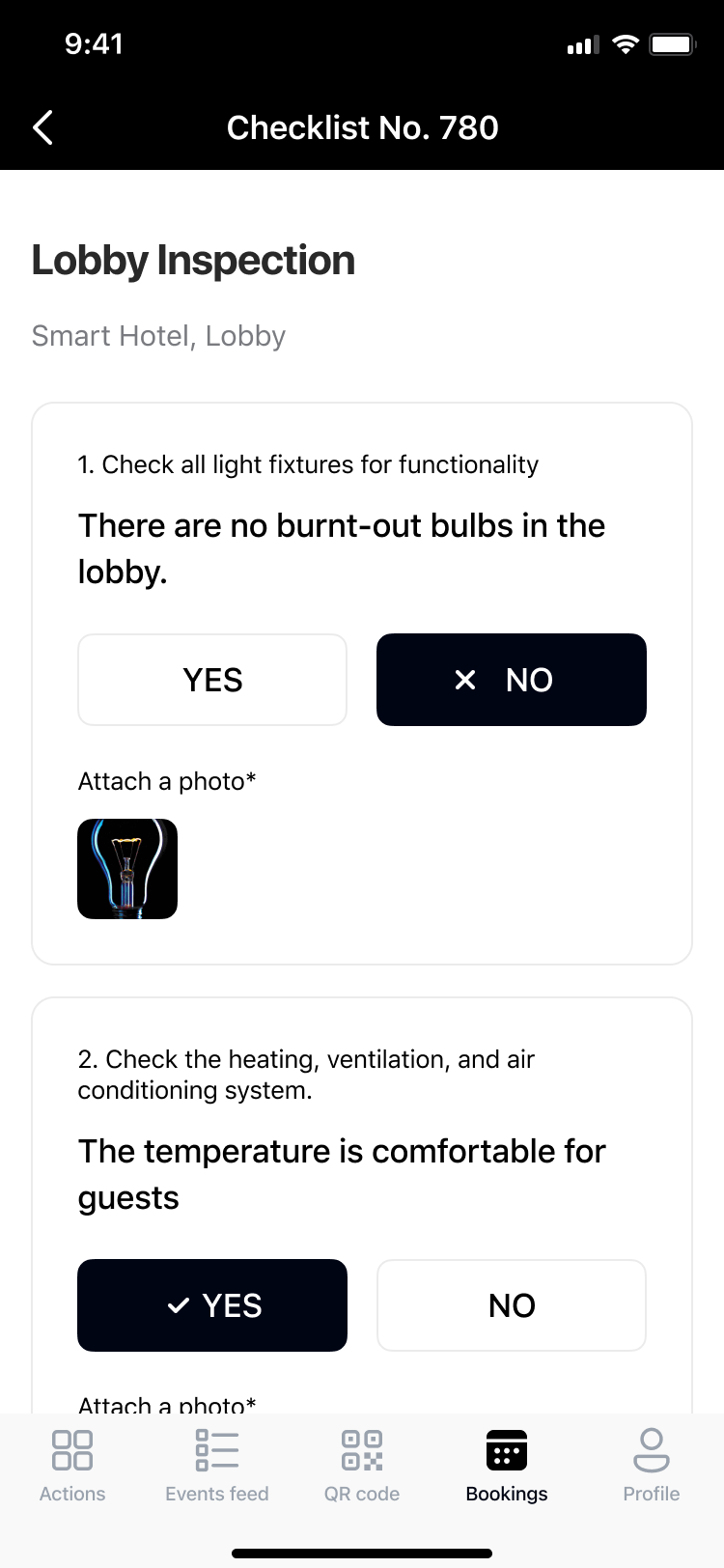
Digital checklists in the TagPoint app
Additionally, such automation solutions also have inventory management opportunities. This enables accurate tracking of supplies and stock levels, facilitating hotel operations efficiency when it comes to procurement and preventing shortages.
Managers and responsible individuals always know the quantity and availability of inventory. They also know when to make the next purchase, and how to avoid overpaying for urgent restocking.
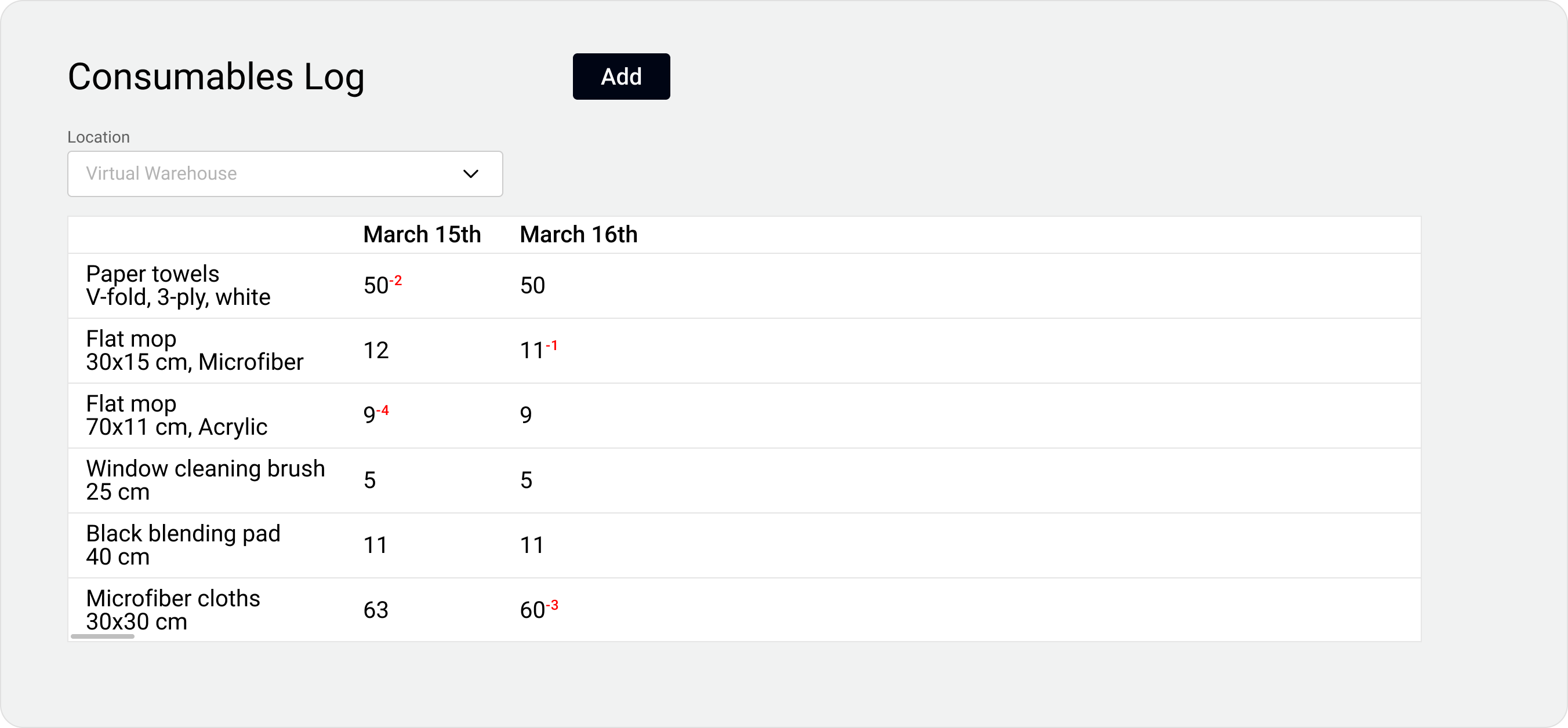 Consumables log in the TagPoint system
Consumables log in the TagPoint system
The traditional method of managing inventory with Excel requires manual data entry. Only when information is entered does it become up-to-date, making it difficult to assess inventory levels and make informed decisions.
In summary, through the adoption of automation for the facility maintenance processes, hospitality professionals can enhance efficiency, minimise operational expenses, and comply with industry regulations.
How automated live reports help hotel managers control daily operations
Hotel management is effective when decisions are driven by data.
Whenever an automation tool continuously collects data, the picture of processes becomes clear, and hotel managers can generate reliable live reports that give valuable insights into daily operations. The reports present key performance indicators, occupancy rates, revenue streams, and guest feedback in an easy-to-read manner.
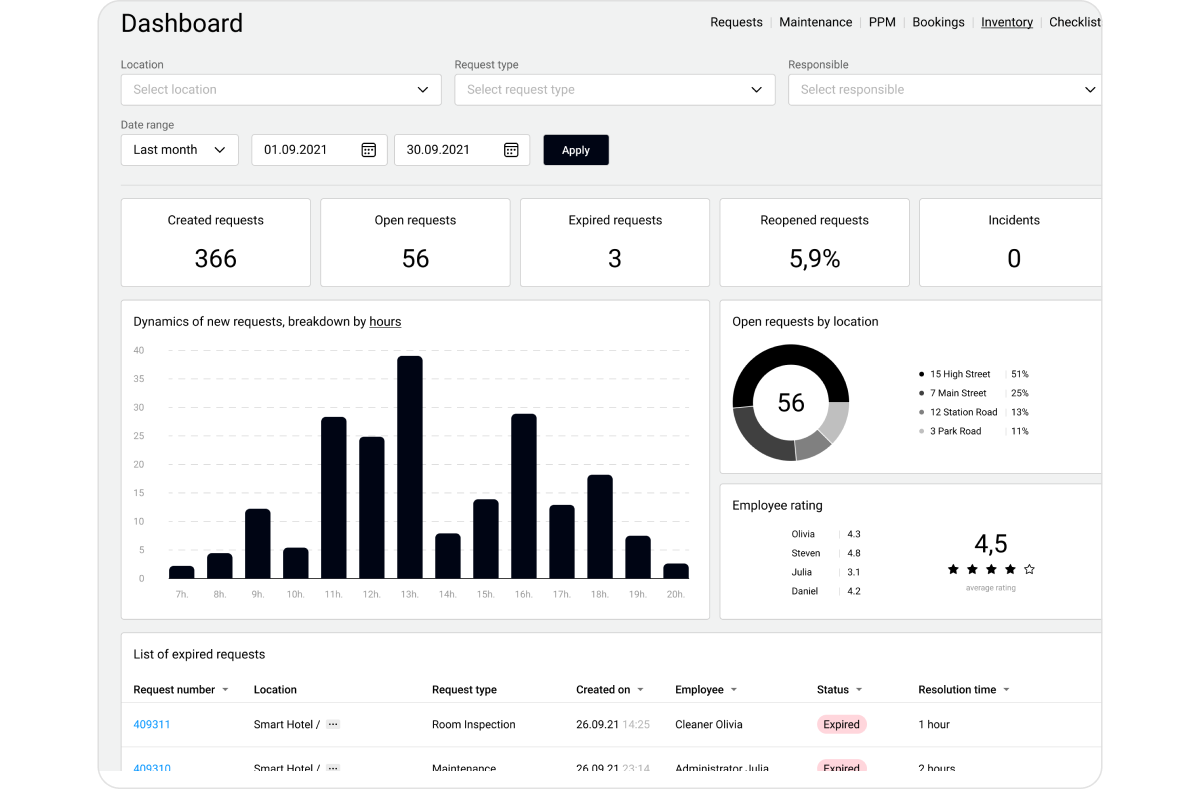 Example of dashboards for analytics
Example of dashboards for analytics
With access to real-time data, hotel managers can make informed decisions promptly. They can identify areas for improvement, allocate resources effectively, and implement strategies to enhance operational efficiency.
In an increasingly competitive hospitality industry, hotels must embrace technology and hotel automation to elevate guest experience and enhance internal processes. By streamlining communication channels, optimising housekeeping operations, automating facility maintenance, and leveraging data-driven decisions, hotels can deliver exceptional service, improve hotel operations efficiency, and maximise guest satisfaction.
As technology continues to advance, it is crucial for hotels to adapt and embrace these innovations in automating hotel operations to stay ahead of the curve. By integrating hotel automation into their business processes, hotels can unlock a world of possibilities and establish themselves as industry leaders committed to delivering exceptional experiences to their guests.




